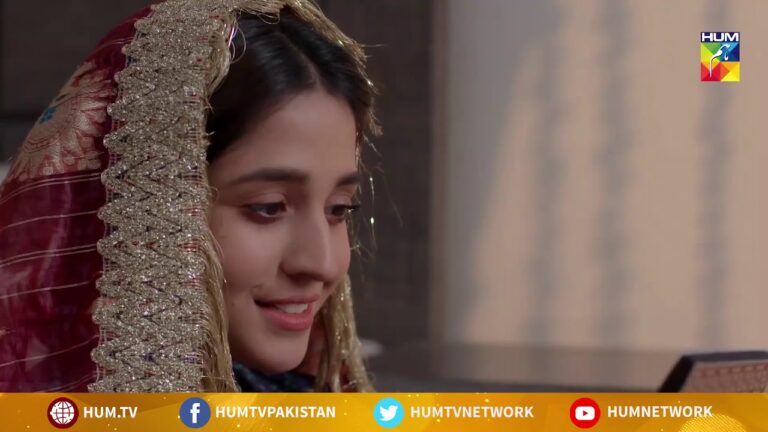Teri Berukhi Drama Review: Teri Berukhi (Urdu for “Fragile Heart”) is a Pakistani drama that explores the complexities of love, betrayal, and the desire for happiness in the face of societal pressures. This review delves into the plot, characters, and its portrayal of social issues, offering insights for viewers seeking a thought-provoking drama.
A Tale of Two Wives
The story revolves around Numair (played by actor Y), a wealthy businessman, and his two wives – Alina (played by actress X) and Shahtaj (played by actress Z). Alina and Numair have a strained relationship due to lack of affection and communication. Numair, seeking solace, impulsively divorces Alina and marries Shahtaj.
Shahtaj: A Beacon of Hope (or Hidden Depths?)
Shahtaj, initially depicted as the ideal wife and stepmother, takes care of Numair’s children and brings harmony to the household. However, the drama leaves room for interpretation. Is Shahtaj genuinely kind, or does she harbor ulterior motives? This ambiguity adds intrigue to the narrative.
Alina’s Fight for a Second Chance
Alina, after a failed second marriage, realizes her regrets and desires a reconciliation with Numair. However, her path is riddled with challenges. Numair’s children initially resent her, and societal norms frown upon a woman seeking a return to her former husband.
Characters with Hidden Layers
-
Numair: Actor Y portrays Numair as a flawed yet relatable character. His impulsive decisions and inability to communicate effectively create conflict, but the drama explores his emotional journey as well.
-
Alina: Actress X delivers a nuanced performance portraying Alina’s vulnerability, strength, and yearning for a happy life. Viewers connect with her desire for a second chance.
-
Shahtaj: Actress Z brings an air of mystery to Shahtaj. While initially presented as the perfect wife, the drama hints at hidden complexities, keeping viewers guessing about her true intentions.
Social Commentary: A Glimpse into Societal Norms
Teri Berukhi sheds light on prevalent social issues in South Asian societies:
-
Patriarchal Structures: The drama highlights the power dynamics within families, where men have greater control over marital decisions. Alina’s struggle to reclaim her place reflects the limitations placed on women in such a society.
-
The Stigma of Divorce: The drama portrays the social stigma attached to divorce, particularly for women. Alina’s attempts to rebuild her life after divorce are met with disapproval, showcasing the societal pressures faced by divorced women.
-
The Importance of Communication: The drama emphasizes the importance of communication in relationships. Numair and Alina’s initial lack of communication paves the way for misunderstandings and ultimately leads to their separation.
Themes of Love, Loss, and Redemption
-
Love and Regret: The central theme of love and regret drives the narrative. Alina’s desire to rekindle her love with Numair and his internal conflict regarding his choices raise questions about lost opportunities and second chances.
-
The Fight for Happiness: Each character strives for happiness in their own way. Alina fights for a second chance, Numair grapples with guilt, and Shahtaj seeks to secure her position. This portrayal resonates with viewers seeking fulfillment in their lives.
-
The Power of Forgiveness: The drama explores the power of forgiveness. Can Alina and Numair forgive each other’s past mistakes and move forward? This question remains a central theme throughout the narrative.
An Unresolved Ending (or a Spark for Discussion?)
The drama’s ending might leave some viewers wanting more closure. Does Alina get her second chance? Does Shahtaj’s true nature come to light? The open-ended nature of the conclusion sparks conversation and allows viewers to interpret the characters’ fates and the themes explored.
Teri Berukhi offers more than just a story of a love triangle. Let’s delve deeper into aspects that linger after the final episode and explore themes that resonate with viewers.
Numair’s Internal Conflict:
Numair’s character is more than just a man caught between two wives. The drama explores his internal conflict. Does he truly regret his impulsive decisions? Does he yearn for a deeper connection with either Alina or Shahtaj? The narrative leaves space for interpretation, making him a complex and relatable character.
Shahtaj’s Enigma: Unveiling Her Motives?
The ambiguity surrounding Shahtaj’s character is a deliberate choice by the writers. Is her kindness genuine, or is there a manipulative side lurking beneath the surface? The drama offers subtle hints throughout, but viewers are left to draw their own conclusions. This ambiguity adds intrigue and keeps viewers engaged in trying to decipher her true intentions.
The Children’s Dilemma:
The children caught in the marital upheaval deserve mention. Their initial resentment towards Alina and eventual acceptance add an emotional layer to the narrative. The drama portrays the challenges children face when their parents’ relationships falter.
A Second Chance: Societal Approval vs. Personal Happiness
Alina’s fight for a second chance goes beyond just rekindling her love with Numair. It becomes a fight against societal disapproval. The drama challenges the stigma attached to divorced women seeking reconciliation with their former husbands. Alina’s journey sparks conversations about societal expectations versus individual desires for happiness.
Beyond the Romance: A Reflection of Reality
Teri Berukhi’s portrayal of societal pressures resonates with viewers from similar cultural backgrounds. The characters’ struggles with communication, economic disparity (if present in the drama), and the weight of family expectations reflect the realities faced by many.
A Call for Empathy and Understanding
The drama encourages viewers to develop empathy for the characters’ situations. Alina’s loneliness, Numair’s confusion, and Shahtaj’s hidden desires are all facets of human experience. Understanding their motivations fosters a deeper connection with the narrative.
Themes That Linger:
-
The Value of Communication: The drama underscores the importance of open communication in relationships. Had Numair and Alina communicated effectively, their initial separation might have been avoided.
-
The Consequences of Choices: Teri Berukhi emphasizes the consequences of impulsive decisions. Numair’s hasty actions have lasting repercussions for himself and those around him.
-
The Power of Forgiveness and Moving Forward: Can the characters forgive each other’s past mistakes and move on? This question remains unanswered, but it is a theme that viewers can contemplate long after the credits roll.
In Conclusion
Teri Berukhi is a captivating drama that delves into the complexities of human relationships. Well-developed characters, a thought-provoking plot, and its exploration of social issues make it a recommended watch for viewers seeking a drama that entertains and challenges societal norms. While the ending may leave some questions unanswered, it encourages viewers to ponder the themes of love, loss, and the pursuit of happiness in the face of societal pressures.










+ There are no comments
Add yours